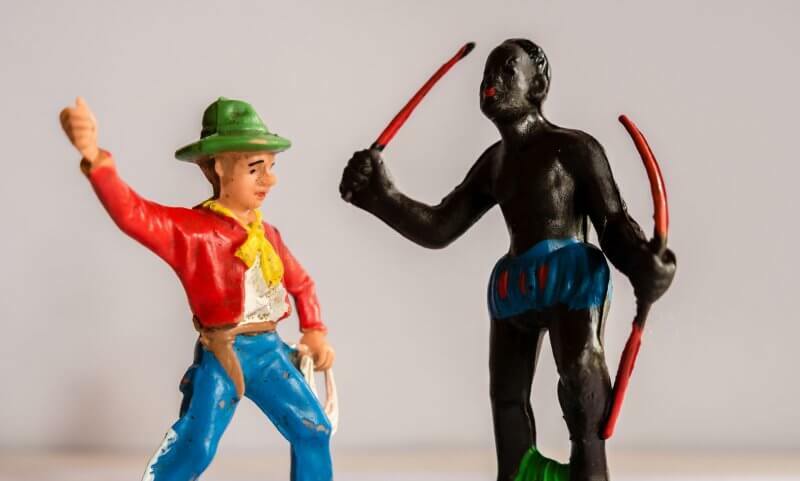Definition of Boer Wars
Miscellanea / / November 13, 2021
By Guillem Alsina González, in Jan. 2018
 In the genesis of the current Republic of South Africa, there are two warlike conflicts that would configure both the territory as the society of that country, and would mark its politics for the next several decades.
In the genesis of the current Republic of South Africa, there are two warlike conflicts that would configure both the territory as the society of that country, and would mark its politics for the next several decades.
The Boer Wars are two armed confrontations fought in the late 19th and early 20th centuries in which is currently South Africa between irregular militias of Dutch emigrants (called Boers) and the Empire British.
The reasons are various, but the main ones focus on the wealth of the disputed territories and their geostrategic importance, the latter being important for the British side, and the former for both sides.
The First Boer War (1880-1881) pitted Boer settlers from the Transvaal against the British Empire.
After being "absorbed" by the Empire in 1877, the Transvaal Republic declared its independence in 1880, after unsuccessful protests by Afrikaaner settlers.
The Afrikaaners immediately took the strategic initiative; knowledgeable about the territory and tough fighters, compensated for the lack of
resources and effective with a very intelligent use of tactics, using guerrilla warfare, taking advantage of the orography of the territory, and acting with great prudence.Initially, they encircled several British garrisons in the Transvaal, attacking convoys of the Imperial army that were going to help them, and they avoided open field battles at all costs, since they knew themselves to be outnumbered and technologically.
A curious fact that stands out from this conflict, and that served as a lesson to the British, was that while the Boer militiamen dressed for combat their farmer's clothes of simple cloth and color khaki blending with the terrain, the former wore their colorful red uniforms (hence the "red coats" with which they were known) visible... especially to the excellent boer snipers, who should be grateful to see their work made easier.
The war ended in a technical draw that was truly a moral victory for the Boer settlers.
The latter were recognized by London for their right to self-govern, although with the supervision of the Empire.
The reason for the Second Boer War (1899-1902) was the discovery of a large gold mine in South Africa, which caused altercations to which both the British and the Boers responded, and reaching such an extent that they led to an armed confrontation direct.
Initially, the initiative and the successes fell from the Boer side, which exploited the same factors that had brought him such good results in the previous conflict, especially the knowledge of the terrain.
Thus, the Boers invaded the British colonies of Natal and the Cape, encircling various cities such as Ladysmith or Kimberley, although their reduced strength and lack of material prevented them from taking, which also posed a risk due to the high number of casualties it could represent among their troops, leaving them useless for later phases of the combat.
The British suffered severe setbacks, such as the battles of Magersfontein, Colenso and Spionkop, in which Boer troops always numerically lowerThey managed to inflict severe defeats on the British, seizing material such as cannons.
The first British open field victory was at the Battle of Paardeberg (February 1900).
In it, the British forced the surrender of Boer General Piet Cronje, one of the most capable commanders of the conflict, who was captured along with a significant number of his men.
This victory marked the change in the course of the war, as it allowed the British to enter Boer territory and capture the capitals of the two competing states: Bloemfontein (Orange Free State) and Pretoria (capital of the Transvaal).
Although these captures were a severe blow to the moral and the Boer war effort, the latter did not give up, going on to wage guerrilla warfare.
Guerrilla warfare is a low intensity confrontation of unequal forces, in which the force Smaller size strikes in the most unexpected and least protected place from its enemy, usually in the rear.
Definitively defeating the irregular Boer guerrilla forces took time, and consisted of a tactic of isolate them first in their natural territories (Transvaal and Orange) and impede or, at least, hinder their movements Through the establishment from block scattered throughout the territory and the use of the same guerrilla tactics with irregular troops that the Boers used, but this time on the part of the British side.
The scorched earth policy, with the destruction or confiscation of crops and livestock, also took its toll on the hardy Boers.
Little by little, the Boer military star faded, until on May 31, 1902, a long, hard and exhausting conflict ended.
As an anecdote for this Second Boer War, we will say that the one who later would be the most brilliant British Prime Minister history, Winston Churchill, was present at the conflagration as a war correspondent for a newspaper British.
Churchill not only informed, but also did not hesitate to side with his side by taking up arms when necessary.
Another fact, much less anecdotal and more deplorable about the conflict, is that it was in this that the first concentration camps for civilians were established.
The "inventors" of the concept were the British, and while these camps were not as cruel as the Nazi camps that would become infamous after World War II, mortality among inmates was also high due to poor conditions hygienic and overcrowding.
The use of concentration camps is part of the scorched earth policy used by the British in the final phase of the conflict.
Photo: Fotolia - animaflora
Topics in Boer Wars